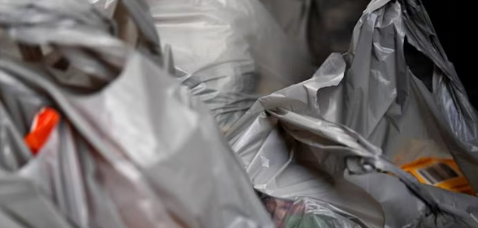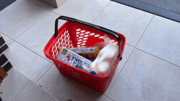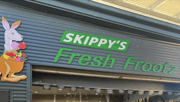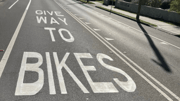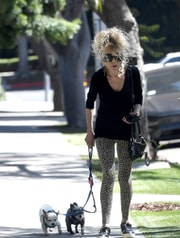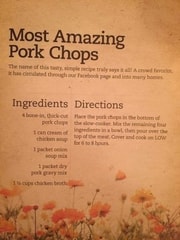From milk bottles to soft plastics—why your next recycling trip might not be the same
By
Maan
- Replies 0
A new nationwide supermarket recycling scheme could soon change how Australians deal with soft plastics—but not without memories of the last disastrous attempt lingering in the background.
The proposal comes from the Australian Competition and Consumer Commission (ACCC), which says it wants to avoid repeating past mistakes.
For many, the collapse of REDcycle in 2022 remains a cautionary tale of good intentions gone wrong.
Almost three years after REDcycle’s implosion, the ACCC unveiled plans for a new industry-led program under the banner of Soft Plastics Stewardship Australia.
Initial members included Woolworths, Coles, Aldi, Nestlé, Mars and McCormick Foods, with the aim of offering both in-store collection and kerbside recycling pilots.
ACCC Deputy Chair Mick Keogh said: ‘It is clear that many Australians are concerned about the environmental impacts of soft plastic packaging and want to recycle it.’
He added: ‘We believe the proposed scheme will result in an environmental benefit as it aims to take over and expand the current in-store collection and kerbside pilots for recycling soft plastic packaging, meaning some soft plastics are likely to be diverted from landfill.’
The new model followed years of supermarket trials in select locations.
REDcycle, which once dominated the space, shut down its operations in November 2022 after it was revealed the company had been stockpiling thousands of tonnes of plastic rather than recycling them.
Investigations found more than 12,000 tonnes of soft plastics hidden across storage sites in New South Wales, Victoria and South Australia.
In April 2023, additional facilities used to hoard the waste came to light.
REDcycle denied it had attempted to hide the problem, blaming the stockpiles on a 350 per cent surge in public participation, a fire at its largest processing partner, and Australia’s limited recycling capacity.
The Victorian charges against the operators were dropped in July 2023, but the company was wound up soon after.
The ACCC previously joined forces with supermarkets under the Soft Plastics Taskforce to deal with the backlog REDcycle left behind.
According to the Australian Packaging Covenant Organisation, Australians used more than 540,000 tonnes of soft plastic packaging between 2022 and 2023—yet only six per cent was recovered.
Recycling schemes only work when everyone knows the right way to use them—and small mistakes can quickly undo good intentions.
While the new supermarket program hopes to improve soft plastic recovery, confusion about what belongs in which bin is still a major hurdle.
One recent story shows how a simple sorting error can lead to unexpected consequences at home.
Read more: Aussies make common bin mistake, get tagged without realising

Will Australians trust supermarkets to get it right this time, or will history repeat itself?
The proposal comes from the Australian Competition and Consumer Commission (ACCC), which says it wants to avoid repeating past mistakes.
For many, the collapse of REDcycle in 2022 remains a cautionary tale of good intentions gone wrong.
Almost three years after REDcycle’s implosion, the ACCC unveiled plans for a new industry-led program under the banner of Soft Plastics Stewardship Australia.
Initial members included Woolworths, Coles, Aldi, Nestlé, Mars and McCormick Foods, with the aim of offering both in-store collection and kerbside recycling pilots.
ACCC Deputy Chair Mick Keogh said: ‘It is clear that many Australians are concerned about the environmental impacts of soft plastic packaging and want to recycle it.’
He added: ‘We believe the proposed scheme will result in an environmental benefit as it aims to take over and expand the current in-store collection and kerbside pilots for recycling soft plastic packaging, meaning some soft plastics are likely to be diverted from landfill.’
The new model followed years of supermarket trials in select locations.
REDcycle, which once dominated the space, shut down its operations in November 2022 after it was revealed the company had been stockpiling thousands of tonnes of plastic rather than recycling them.
Investigations found more than 12,000 tonnes of soft plastics hidden across storage sites in New South Wales, Victoria and South Australia.
In April 2023, additional facilities used to hoard the waste came to light.
REDcycle denied it had attempted to hide the problem, blaming the stockpiles on a 350 per cent surge in public participation, a fire at its largest processing partner, and Australia’s limited recycling capacity.
The Victorian charges against the operators were dropped in July 2023, but the company was wound up soon after.
The ACCC previously joined forces with supermarkets under the Soft Plastics Taskforce to deal with the backlog REDcycle left behind.
According to the Australian Packaging Covenant Organisation, Australians used more than 540,000 tonnes of soft plastic packaging between 2022 and 2023—yet only six per cent was recovered.
Recycling schemes only work when everyone knows the right way to use them—and small mistakes can quickly undo good intentions.
While the new supermarket program hopes to improve soft plastic recovery, confusion about what belongs in which bin is still a major hurdle.
One recent story shows how a simple sorting error can lead to unexpected consequences at home.
Read more: Aussies make common bin mistake, get tagged without realising
Key Takeaways
- The ACCC proposed a new industry-led recycling scheme for soft plastics.
- The plan would be managed by Soft Plastics Stewardship Australia, with major supermarkets and brands as members.
- REDcycle collapsed in 2022 after stockpiling over 12,000 tonnes of plastic.
- Only six per cent of soft plastic packaging was recovered in Australia between 2022 and 2023.
Will Australians trust supermarkets to get it right this time, or will history repeat itself?

